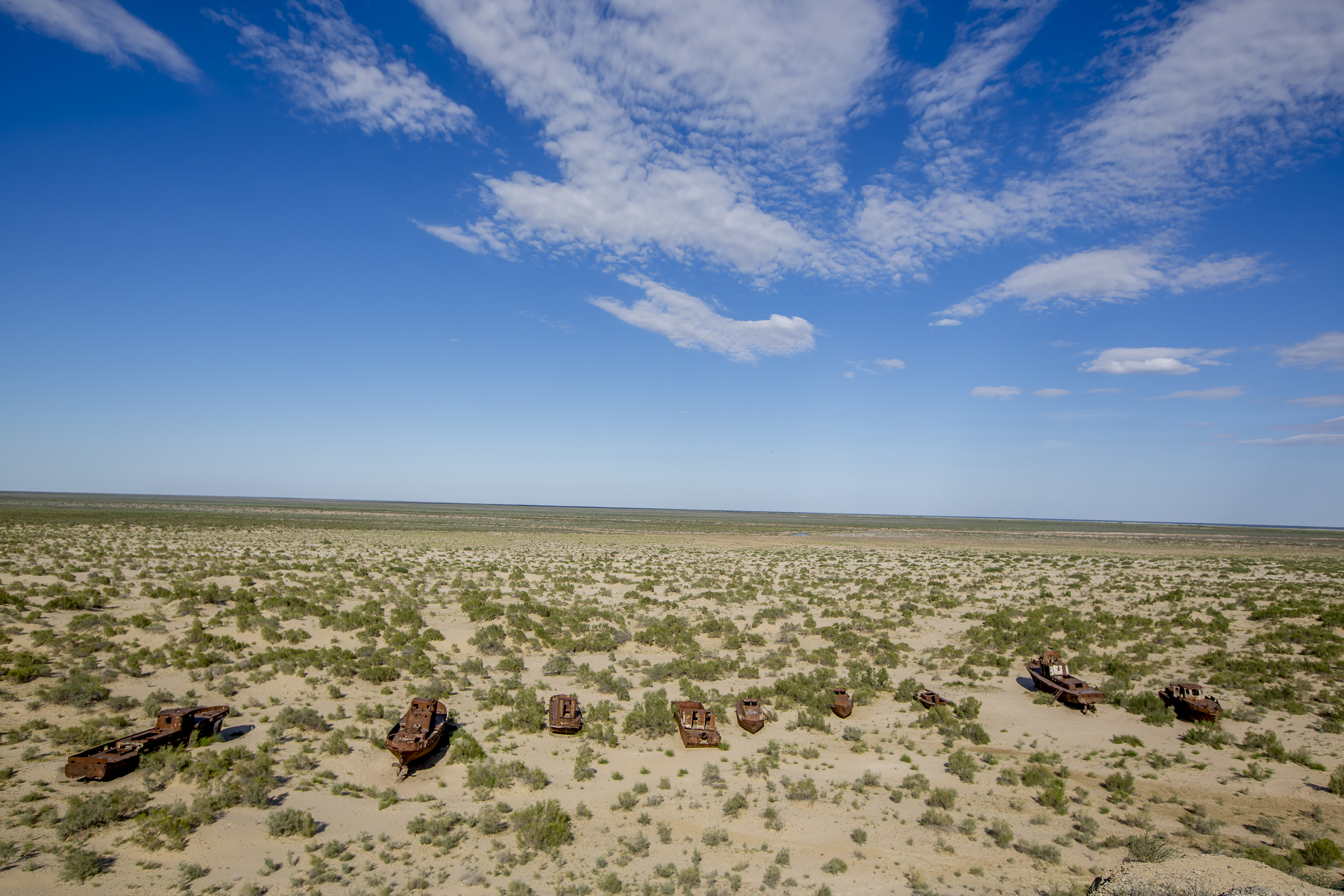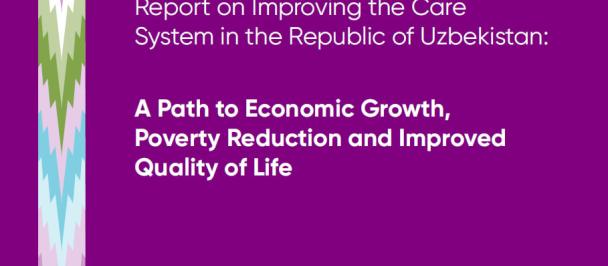On 27 November 2018, the UN Headquarters, New York, will host a High-Level Event on the launch of the UN Multi-Partner Human Security Trust Fund for the Aral Sea Region in Uzbekistan.
The event will be organized by the Government of the Republic of Uzbekistan, Japan and Norway in cooperation with the UN Human Security Unit, the UN Country Team in Uzbekistan and the UN Multi-Partner Trust Fund Office.
The High-Level Event is dedicated to the official launch of the UN Multi-Partner Human Security Trust Fund for the Aral Sea Region (MPHSTF) in Uzbekistan under the auspices of the UN. The event will present the Fund's programme strategy based on analyzing and meeting the needs and requirements of the population affected by the Aral Sea crisis through the application of the concept of human security. Another objective of the Event is also to draw the attention of the broad international community and donor countries to the environmental disaster of the Aral Sea, which has already moved beyond national and regional borders and more than ever requires the integration of the efforts of the entire international community.
On 22 June 2018, the United Nations General Assembly adopted resolution 72/283 on strengthening regional and international cooperation to ensure peace, stability and sustainable development in the Central Asian region.
The resolution affirmed the importance of closer and more coordinated cooperation between the States of Central Asia and called upon Member States inter alia "to support the efforts of the Central Asian States aimed at mitigating the environmental and socioeconomic consequences of the drying up of the Aral Sea." It further urged the specialized agencies, funds and programmes of the UN system "to harmonize their programmes and activities in support of the priorities for regional cooperation, integration and sustainable development in Central Asia."
Negative consequences of the drying up of the Aral Sea
Once the world’s fourth largest lake, the drying of the Aral Sea is considered one of the world’s worst environmental disasters, causing a cascade of environmental, socioeconomic, health and humanitarian challenges for the governments and communities in the region. The fivefold reduction in water flow from the Amu Darya and Syr Darya rivers has decreased the volume of the Aral Sea by more than 14 times over the past 50 years. Salinity levels have increased by 25 times, and now significantly exceed those of the world’s oceans. Today, in place of once flourishing fishing waters, a sandy salt desert of more than 5.5 million hectares is a breeding ground for dust and salt storms, carrying more than 75 million tons of dust and poisonous minerals into the atmosphere every year across thousands of kilometers.
The Aral catastrophe has exacerbated climatic conditions in the region, increasing dryness and heat in summer and extending periods of cold in the winter. According to forecasts of experts, by 2035-2050 the air temperature in the region can increase by another 1.5-3.0 Celsius relative to current indicators. Moreover, the threatening impact of the Aral catastrophe is observed all over the world. According to international experts, poisonous salts from the Aral region are found on the coasts of Antarctica, in the glaciers of Greenland, in the forests of Norway and many other parts of the globe.
What are the objectives of the Fund?
1. Ensure a coordinated approach to addressing problems in the Aral Sea region, related to the livelihood of the population, including aspects of health, economic development, environmental situation, social protection, etc.
2. Provide integrated development assistance to the Aral Sea region through the joint efforts of the Government of Uzbekistan, the UN Agencies and the donor community within the framework of the Trust Fund's Strategy.
3. Draw the attention of the world community to the problem of the Aral Sea region and mobilize technical and financial resources for the development of the region.
4. Attract new knowledge, innovative technologies and approaches to the Aral Sea region to ensure sustainable development of the region, which could become a kind of "hub" of environmental innovations and technologies.
How will the Fund achieve its objectives?
The Fund will combine the experience of various stakeholders, including international financial and donor organizations, the Government of Uzbekistan, national regional and local authorities, UN Agencies and public organizations. The MPHSTF's activities will not be limited to short-term measures but will advance comprehensive innovative solutions that facilitate the exchange of technology through South-South cooperation, with active involvement of local communities. These solutions, in fact, are aimed at preventing consequences rather than responding to them. Thus, the MPHSTF's activities and projects will fully complement and continue the efforts of the Government, aimed at addressing the problems of the Aral Sea region by using a programme approach that supports strategic, transparent and impartial development cooperation in line with international best practices.
In addition, this will be achieved in the following way:
• By implementing the measures of the Trust Fund's Strategy, which is designed on the basis of results of a sociological survey to identify the needs and requirements of the population living in the Aral Sea region. The survey was conducted in 2017 in the 8 most affected areas of the Republic of Karakalpakstan and covered 1,600 households.
• By ensuring a transparent administration process by the Fund under the auspices of the United Nations, on the basis of international standards of accountability and transparency – this will be implemented by the Office of the UN Multi-Partner Trust Fund in New York.
• By ensuring transparent selection, approval, implementation and monitoring of projects, with the possibility of involving donor organizations that will have real-time information where they invest.
• The Fund will enhance the capacity of national entities in developing project proposals and implementing projects in accordance with international norms and standards.
• The Fund will focus on achieving specific results set out in the Strategy and, to do so, will provide a system for monitoring, evaluating and reporting the activities of the entire Fund and its projects within the framework of international requirements and local legislation.
What are the benefits to the population?
Several objectives need to be pursued: job creation, management of natural resources, improvement of social services in health and education, empowerment of women and girls, including support to women in difficult circumstances, development of good governance through joint planning and implementation of initiatives.
It should be noted that the Government of Uzbekistan has been implementing a number of programmes in the above areas, including within the framework of the State Programme on Development of the Aral Sea Region for 2017-2021. The purpose of the Fund is to complement these efforts by mobilizing a coordinated donor assistance, based on the Fund's integrated Strategy. The Fund will also prioritize the most vulnerable and remote areas of the Aral Sea region and direct work with communities.

 Locations
Locations




